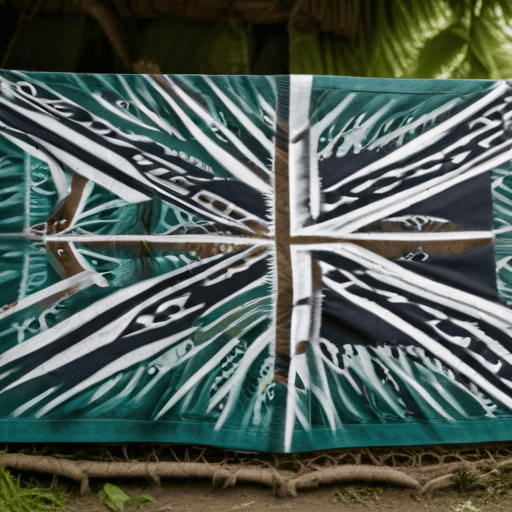On the 26th of September, during the month of the traditional Fijian calendar, a significant religious ceremony was held by the leaders of the Nauluvatu clan. This event took place at the Kalivari Church in Samabula, Suva, with the Minister for iTaukei Affairs in attendance to confirm the leadership role of Sairusi Rakai for the Nauluvatu clan.
When the name Nauluvatu is mentioned, many might think of the villages in Waidina, Naitasiri, and another village in Nakelo bearing the same name. Others might associate it with the area in Suva located on Reservoir Road, near St. Giles Psychiatric Hospital.
Waisale Davuiqalita stated during a discussion at Naocovuaka in Lami on the 28th of November 2024, that Nauluvatu, located in Suva, serves as the base for the Nauluvatu clan. Davuiqalita shared significant information regarding their clan.
One of the important pieces of information he relayed included documents written by a foreign figure, Colman Wall, in 1919. Wall chronicled events and occurrences that took place in the past, including the establishment of the town of Suva in 1843.
Wall also wrote about his journey to Suva from a site called Qaraniqio and mentioned Dakuwaqa during his return from Nadroga. His brother, Banuve, noted that Wall was present during the rule of Roko Tui Dreketi at that time.
The discussions revealed that the records Wall documented reflect the stories about the iTaukei people and their historical narratives, portraying how some ancestral stories have been preserved. For those in Suva, there is a manuscript that can be viewed alongside the contemporary discussions tracing back to their clan’s heritage. Additionally, there are various documents from the colonial period drafted by individuals appointed for service in the region.
Davuiqalita noted that several of their ancestors traveled to Vatuwaqa, which is currently recognized as the area of Kaunikuila or Flagstaff. Their current journey connects the Nauluvatu community with several of their relatives from Nacokaika.
In this context, the writings of Wall align with the accounts shared by Davuiqalita, while also highlighting certain discrepancies in the details. For instance, Wall recorded the names of places associated with Nacokaika’s history before journeying to Vatuwaqa or Kaunikuila — Baniwalai being close to Tamavua.
There are plans to further discuss the importance of Davuiqalita’s dialogues regarding the religious leadership of the Nauluvatu clan in the coming weeks. The discussions will take place at Naocovuaka along with a phone conference scheduled for the morning of Sunday, December 5, 2024, where Davuiqalita confirmed they have not yet engaged with Roko Tui Suva.
He emphasized that the ancestral line has been preserved for over 100 years.
As the weeks progress, the community looks forward to the insights shared by Davuiqalita and the essential matters concerning the leadership of the Nauluvatu clan.
This series of discussions not only fosters a deeper connection to cultural identity but can also inspire future generations to stay engaged with their heritage and community.

Leave a comment